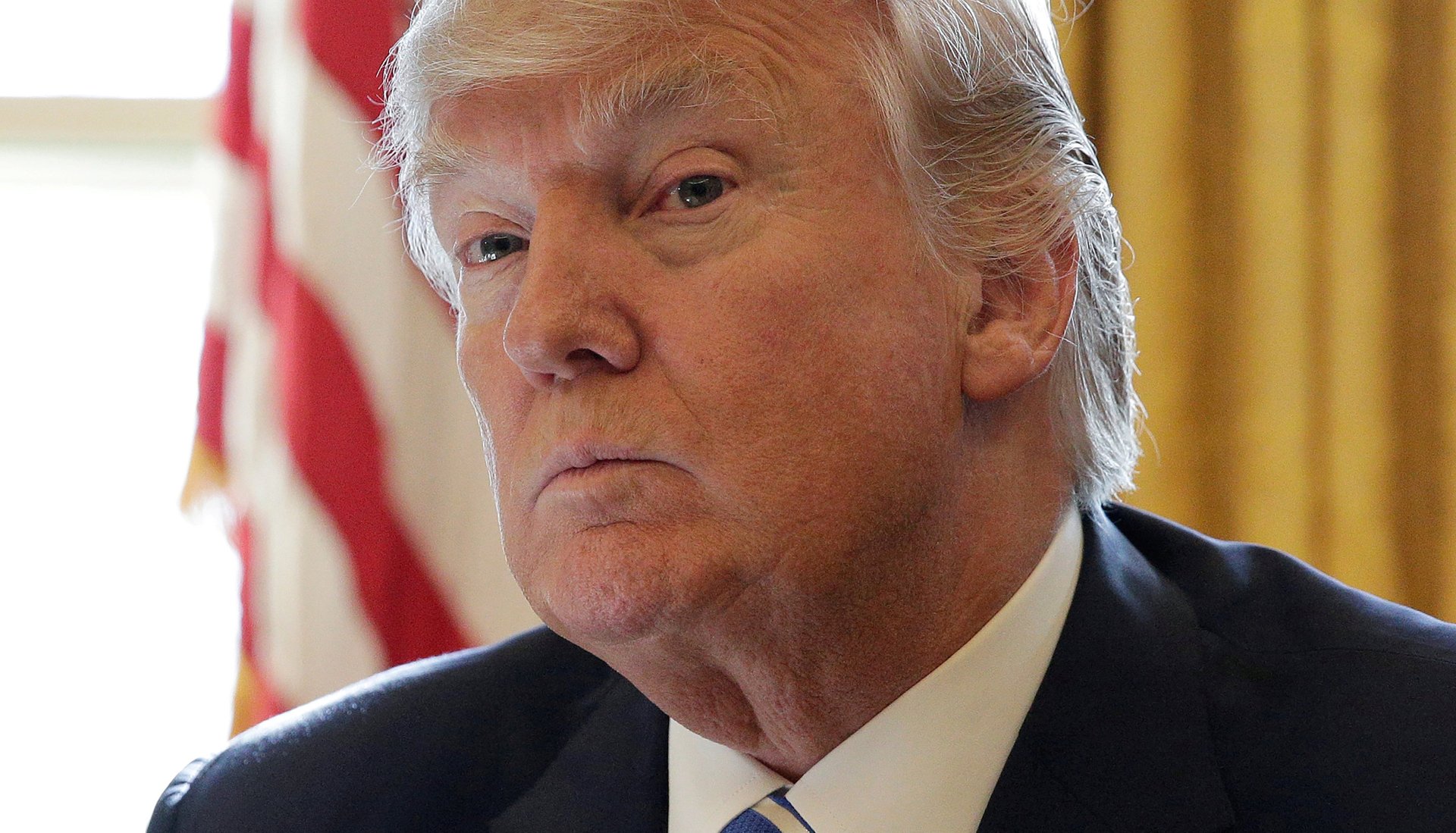Spreading lies is a classic authoritarian power move. Don’t let Trump get away with it
It’s no secret that Donald Trump is a voluminous liar. But beyond exhausting fact-checkers and infuriating the Twitter accounts of dictionaries, what have Trump’s range of lies accomplished? And, perhaps more ominously, what does his shameless mendacity suggest about future governing decisions?


It’s no secret that Donald Trump is a voluminous liar. But beyond exhausting fact-checkers and infuriating the Twitter accounts of dictionaries, what have Trump’s range of lies accomplished? And, perhaps more ominously, what does his shameless mendacity suggest about future governing decisions?
It’s not simply that Trump’s grasp of the truth seems precarious, or that, as Politico’s Maria Konnikova has laid out, the sheer scale of his fabrications mean we “stop reacting to the liar as a liar.” Rather, Trump’s lies should be viewed as a means to an end—both for himself and for the coterie of white nationalists and burgeoning kleptocrats in his administration. Trump’s “alternative facts,” as Kellyanne Conway memorably offered, are tools that have long been used by authoritarian leaders to solidify power through mythmaking, distract the electorate and media, and even test party loyalty.
Trump’s dishonesty is a familiar tactic of authoritarian regimes, populist or otherwise. It’s not that Trump necessarily believes that, say, Hillary Clinton received millions of illegal votes. Rather, as political analysts have rightly surmised, Trump’s claims lay the groundwork for a potential crackdown on voting rights, especially within minority populations.
Likewise, and perhaps more disconcertingly, Trump’s wholesale fabrications “separate the believers from the disbelievers—for the purpose of rewarding the former and punishing the latter,” as The New Republic’s Jeet Heer recently wrote. Or as Bloomberg’s Tyler Cowen expounded, “promoting lying is what economists sometimes call loyalty filters.”
Again, Trump’s tactics are neither new, nor untested. Indeed, lying has served as the glue of autocracies throughout history. In the same way that Trump and his team lied ad nauseum about the size of his inauguration audience, so too did Benito Mussolini lie about the magnitude of his debunked “March on Rome.” Much as Trump lies about mundane inanities—enough to force his lawyers to start meeting with him in pairs—so too did Joseph Stalin lie about frivolous details, like his real birthday. And much like Francisco Franco, as one historian said, “lied about almost everything,” Trump, according to one fact-checker, lies “at all hours… sometimes without any purpose at all.”
And then there are Trump’s contemporary equivalents. Viktor Orban, Hungary’s budding autocrat, has recently claimed repeatedly (and incorrectly) that Middle-Eastern refugees threaten to undermine Budapest’s sovereignty, which is a move designed to help consolidate his power and that of his party. (At last check, asylum seekers in Hungary, a country of 10-million people, number slightly over 1,000.) Russia’s Vladimir Putin oversees a network of sycophants that stoke the fears of his anti-Western nativist base to distract from his country’s flat-line economy—pushing a model, as Peter Pomerantsev wrote, where nothing is true and everything is possible. Autocracies from Tajikistan to Turkmenistan, Khartoum to Cairo, lie with such regularity that the truth becomes a novel phenomenon.
To be sure, there’s every chance that Trump has no idea what he’s doing. But if this is the case, it’s likely those around him do. It’s even possible that Trump is little more than a “blunt instrument” for White House chief counsel Stephen Bannon, whose own designs appear to out-pace even Trump’s. Bannon, in a widely circulated interview from November, did note that “darkness” can be a good thing. “That’s power,” he said. “It only helps us when they get it wrong. When they’re blind to who we are and what we’re doing.”
This, then, is the reality that America faces some three weeks into a Trump presidency: A chief executive whose lies have set the rhetorical parameters for massive voting-rights rollbacks and immigration clampdowns. And the list of potential targets is only going to get longer.
More broadly, America now has a president who lies to confirm conspiracy. A president lies “to destroy rational thought,” Roger Cohen noted last month. Trump’s lies are “alternative facts” in the same way that autocracies in Russia and Egypt and Venezuela are now alternative democracies. The uncertainty and confusion sewn by these falsehoods is a power-hungry leader’s best friend.
Perhaps Hannah Arendt, in her discourse on totalitarianism, said it best. With a willing-enough base, an executive “could make people believe the most fantastic statements one day, and trust that if the next day they were given irrefutable proof of their falsehood, they would take refuge in cynicism; instead of deserting the leaders who had lied to them, they would protest that they had known all along that the statement was a lie and would admire the leaders for their superior tactical cleverness.”
For Trump, the lies are part of a bigger picture that’s slowly coming into focus. It’s our job to try and connect the dots before it’s too late.